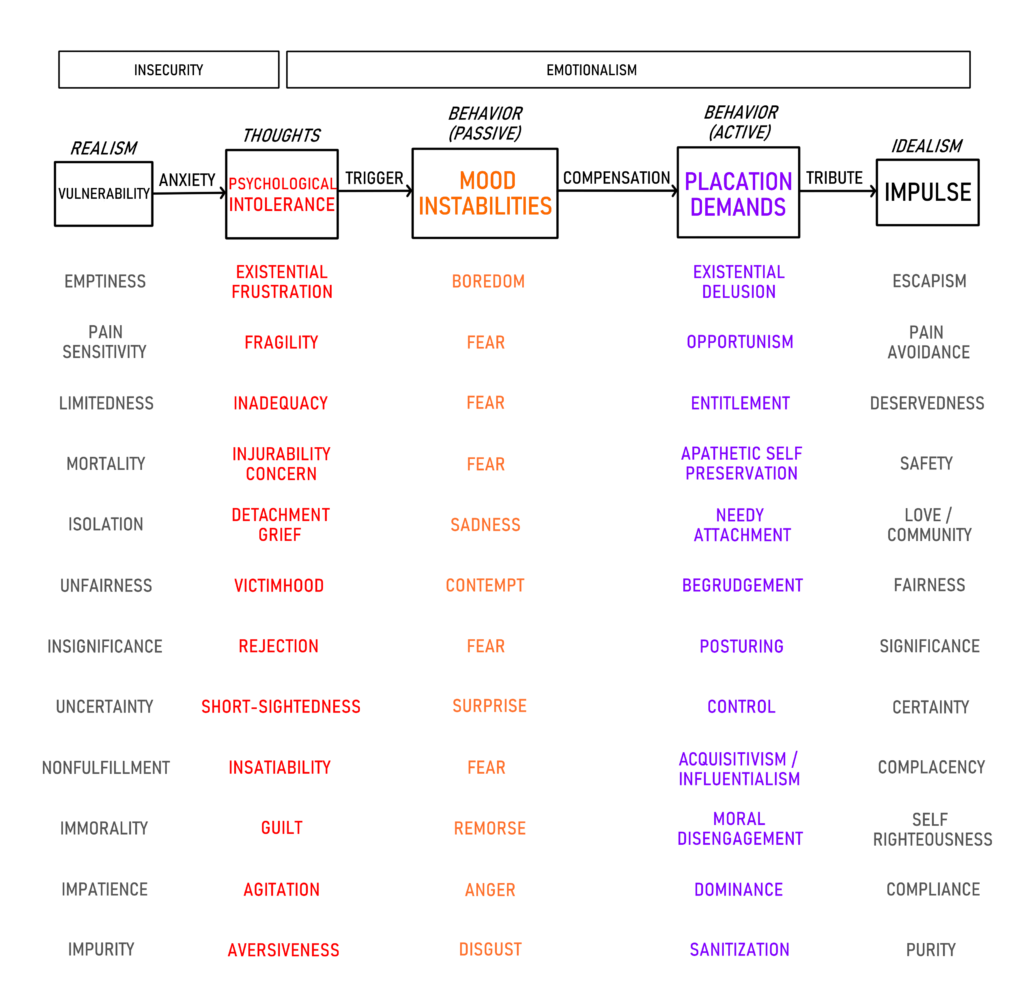By definition:
The ideology of making demands to tribute or placate one’s impulses, usually at the expense of others.
Imagine an ideology, religion or creed that is solely centered around justifying or normalizing our biological impulses, demanding others to be servile in placating us for our psychological intolerances towards realism, where an entire people would engage in the anxieties of having problems in order to develop mood instabilities so they can feel righteous in demanding others be expended to provide solutions, or mood stabilizers, for having those problems. This belief system would be emotionalism. Its followers would be called emotionalists, psychologically addicted to hormonally stimulated sensations of anxious self-importance.
Emotionalists are insecure people who have chosen to express their agitations and anxieties as demands. At the expense of others, their impulses are expected to be compensated via the receipt of others’ cooperation, voluntarily or not. Notorious for denying the reality of their vulnerabilities while serving out their selfish impulses, emotionalists’ agenda can be framed by the following:
“I demand [INSERT PLACATION DEMAND] to cope with my [INSERT MOOD INSTABILITIES] that were developed by the [INSERT PSYCHOLOGICAL INTOLERANCES] that I chose to nurture.”

It is common among those who are purposeless (the empties), who are yearning to escape the boredom their existence, to deliberately destabilize their mood so that they can demand others be responsible for restabilizing it. This allows them to receive attention from others that otherwise wouldn’t have been.
Because emotionalists are distinguished for their mood instabilities, societal culture trends around serving their agenda, as they are the global majority.
Day-to-day problems create psychological anxieties, as problems are mood destabilizers. Such problems are then economically answered by solutions, as solutions are mood stabilizers.
In the current day, mood stabilizers observably exist as various forms of products and services, designed to help emotionalists maintain their mood stabilities.
Example:
Mood instability: My car broke down. I’m agitated that I can’t get to work by tomorrow.
Mood stabilizer (service): A car mechanic can fix the car overnight.
Relief: I can now drive my fixed car to work on time.
Since intellectuals are best equipped to create such products and services (as solutions) to address society’s problems, the emotionalist majority has become hooked on the contributions of the intellectual minority. This dependence makes emotionalists needy, manipulating intellectuals to become their “meant-to-be” caregivers and creating an environment that is becoming more and more hostile towards the capable, passionate, morally willed and thick-skinned in order to placate the mood instabilities of the inadequate, passionless, two-faced and thin-skinned.